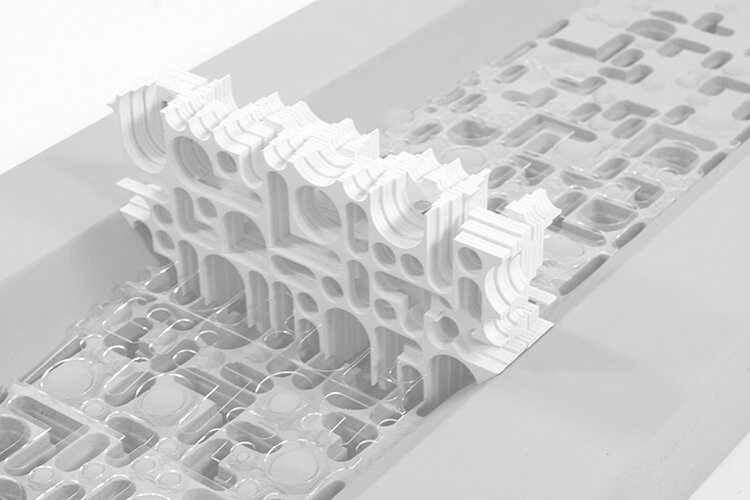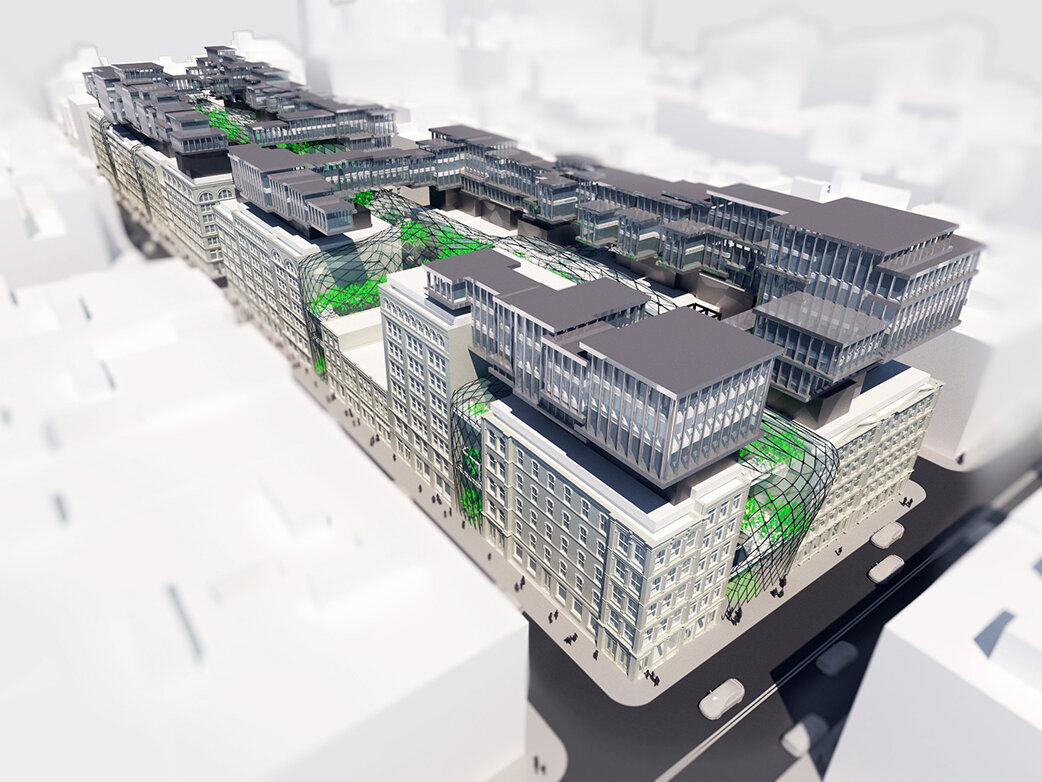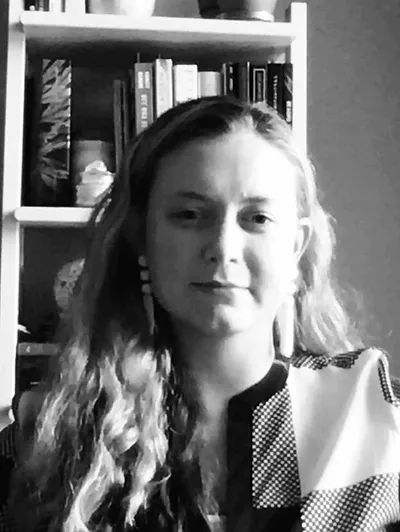Geofutures
Master of Science in Architecture
The Geofutures Master of Science in Architecture is a one-year, two-semester program that takes an interdisciplinary approach drawing on advanced knowledge and expertise from the disciplines of architecture and landscape architecture.
Dually based within the School of Architecture in Troy, NY and the Center for Architecture, Science, and Ecology (CASE) in Brooklyn, NY, the program brings together a diverse group of researchers, educators, and professionals working at the intersections of architecture and landscape architecture. The program leverages Rensselaer’s diverse STEM and humanities departments as resources to provide students with a range of perspectives concerning the future of landscape and architectural practice.
The program focuses on critical awareness and technical proficiency through design experimentation. Geofutures students have the opportunity to participate in interdisciplinary design studios, history/theory seminars and lecture courses, building science seminars and lecture courses, software and fabrication seminars and workshops, as well as interdisciplinary coursework in departments across the institute.
Learn More
Request more information about the Center for Architecture, Science, and Ecology
Academic Curriculum
The two-semester, 30-credit curriculum integrates yearlong courses specific to the Geofutures MSArch program with fall and spring semester courses specific to the Built Ecologies MS in Architectural Science program.
Summer Workshop
(optional)
All incoming Geofutures students are encouraged to attend a two-week intensive digital workshop and design seminar. This workshop will prepare students with digital design skills necessary to excel in the program.
Fall Semester
Master’s Project I
Geo-Actors I
Urban Data I
Environmental History & Theory
(Built Ecologies MS in Architectural Science)
Research Design Seminar
(Built Ecologies MS in Architectural Science)
Spring Semester
Master's Project II
Geo-Actors II
Urban Data II
Graduate Thesis Seminar
(Built Ecologies MS in Architectural Science)
Situated at both the School of Architecture and CASE, with all courses at CASE offered in a hybrid format, students have the option of being based in Troy and/or Brooklyn.
The MSArch degree is STEM designated in Architectural and Building Sciences/Technology (CIP code 04.0902). For international students, this designation allows for up to three years of OPT training in the U.S. through an F-1 visa and following graduation.
Student Work
Students in the Geofutures program undergo extensive training in the use of contemporary design tools and techniques. Skills taught include digital modeling, rendering and representation, as well as digital fabrication skills. Software skills taught include modeling using Rhino, parametric modeling techniques using Grasshopper, and polygon modeling using Maya. The program places an emphasis on teaching and developing digital skills that will help students in their design studio work as well as in professional offices after graduation.
Faculty

Apply to Geofutures
The following materials are required for consideration of admittance to the program. Deadline to apply is March 1. First consideration will be given to applications received by this date. Rolling applications accepted thereafter.
Please note separate or additional requirements for international and co-terminal students as listed below.
Merit scholarships valued at 40% of the annual tuition are available to qualified applicants.
Admission Requirements
• Personal Statement (addressing research interests, career goals, and relevant academic, research or professional experience)
• Resume or CV
• Two Letters of Recommendation
• Portfolio (a portfolio of creative work, not limited to architectural design, we welcome the submission of a variety of media and creative projects, inclusive of work from students with backgrounds in related disciplines, see Graduate Admissions portal for more information on formatting requirements)
• Transcripts
• Application Fee
Note: GRE/GMAT scores are not required at this time.
International Students
• TOEFL, IELTS, Duolingo, or PTE is additionally required for applicants whose native language is not English
Note: Applicants possessing a valid Green Card are considered a domestic applicant for the purposes of tuition and financial aid.
Admission Requirements for Co-Terminal Students at Rensselaer
The only admission requirements for co-terminal students is a minimum 3.0 GPA and the submission of a Graduate Plan of Study (to be completed with the program co-directors). Co-terminal students do not need to submit the items listed above. Co-terminal applications are to be submitted online through Slate through the following link: https://info.rpi.edu/coterminal-program/co-terminal-application
For more information about Graduate Admissions at Rensselaer
https://admissions.rpi.edu/graduate/masters-and-phd-applicants
Recent Alumni
Alumni Testimonials
“The intersections between ecology, architecture, and urban design, drew me to the Geofutures program. Throughout the program, I was pushed and challenged to engage in theoretical thinking, which led to a fully developed project responsive to the 21st century postnatural world. Over the course of many challenging classes, taught by knowledgeable professors, I was able to develop new computational and analytical skills that not only benefited my project but myself as a young designer.” Stephanie Breslin ‘17
“For me, the most important aspect of the Geofutures program had to do with the challenge of developing a vision for the future of urbanity within the context of speculative urban proposals from the past. In a highly compact year of graduate study, students develop a comprehensive theoretical / historical understanding of the role architects played in creating visions of future cities in the 20th Century, while at the same time engaging the issues and challenges of the 21st Century. I would recommend this program to anyone looking for a unique course of graduate study that provides students with critical skills of theoretical and historical analysis as well as an advanced working knowledge of contemporary design software and fabrication technology.” Tanzil Shafique ‘14
“Being part of the Geofutures program was a great experience for me. Not only did it provide me with an opportunity to enrich my professional skills, but the diversity and intensity of the program also challenged me to think about much larger disciplinary questions, such as the future of architecture and urban design. Very different from what I learned as a student of architecture in China, the Geofutures / Ecological Urbanism program encouraged me to think outside the box and explore other fields of knowledge for new ideas and inspiration. I believe it is every architect’s dream to be part of a creative revolution and this program definitely caters to those students interested in futuristic and visionary design." Sisi Qian ‘13











Faculty Member, Art Institute of Austin, Texas